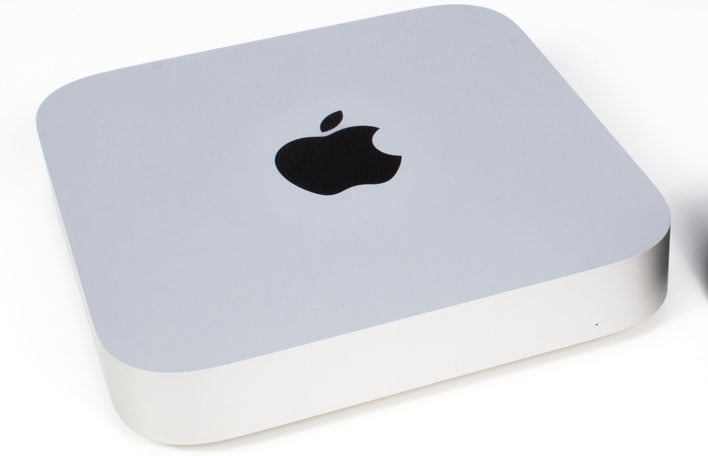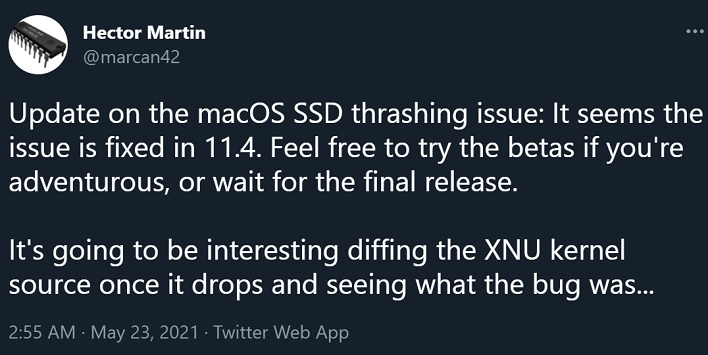Apple's macOS 11.4 Update Brings Fix For Troubling SSD Wear On M1 Macs

Apple's family of M1 Macs is pretty impressive. Cupertino's attempt to replace Intel's Core family of CPUs with its own home-grown processors has been pretty solid. We were blown away by the power efficiency and performance of the most entry-level Mac there is, the 2020 Mac mini with the company's M1 SoC. The thing is, there have been some bumpy software issues along the way. The most troubling appeared to be that the systems could potentially put a lot of strain on the built-in (and non-replaceable) solid state drives.
As has always been the case when M1 software issues crop up (such as the M1 EL0 state bug dubbed M1RACLES), developer Hector Martin was among the first to discover and report issues with Apple Silicon Macs that would chew up their solid state storage. The SMART tools built into macOS Big Sur reported an abnormal amount of wear in some Macs with M1 processors writing nearly as much data as they were reading. Since most users are working with the same apps day-in and day-out, that implied that much of what was being written to the drive was never read back.
Not everyone saw results like one user, who reported on average nearly 30 MB per second being written to his Mac for the life of the machine. Our own Macs (my own house has three Mac minis in total, including two with the M1) never exhibited this behavior, but that doesn't negate the experience of some users. The users who experienced it were doing some pretty heavy-duty lifting, and Apple Silicon Macs currently max out at just 16 GB of memory. It's for that reason that Martin was convinced macOS was aggressively swapping applications in and out of memory, writing to the Mac's storage frequently.

Fast forward the present where macOS Big Sur has had just over six months of public availability, and the 11.4 update for Apple's desktop OS was released early last week. Just before the public release, Martin noticed that his Mac running Apple's 11.4 beta had stopped exhibiting signs of overly-aggressive disk writing. It seems that the issue was not related to reporting, and therefore the drives still show just as much written as before. However, Martin and a few other users who have replied all say that it's quit counting upwards so quickly. That should help extend the usable life of an Apple Silicon Mac since it shouldn't chew through the remaining life of the drive as quickly.
Ever since the dawn of Mac OS X in 2001, Apple has published the Darwin and XNU kernel source code to GitHub. On May 24, the same day that macOS Big Sur 11.4 was released, Apple pushed a source code update. While it hasn't been determined exactly what changed just yet, that source code push will likely contain the answers for anybody familiar enough with XNU's architecture to find the right commit.

